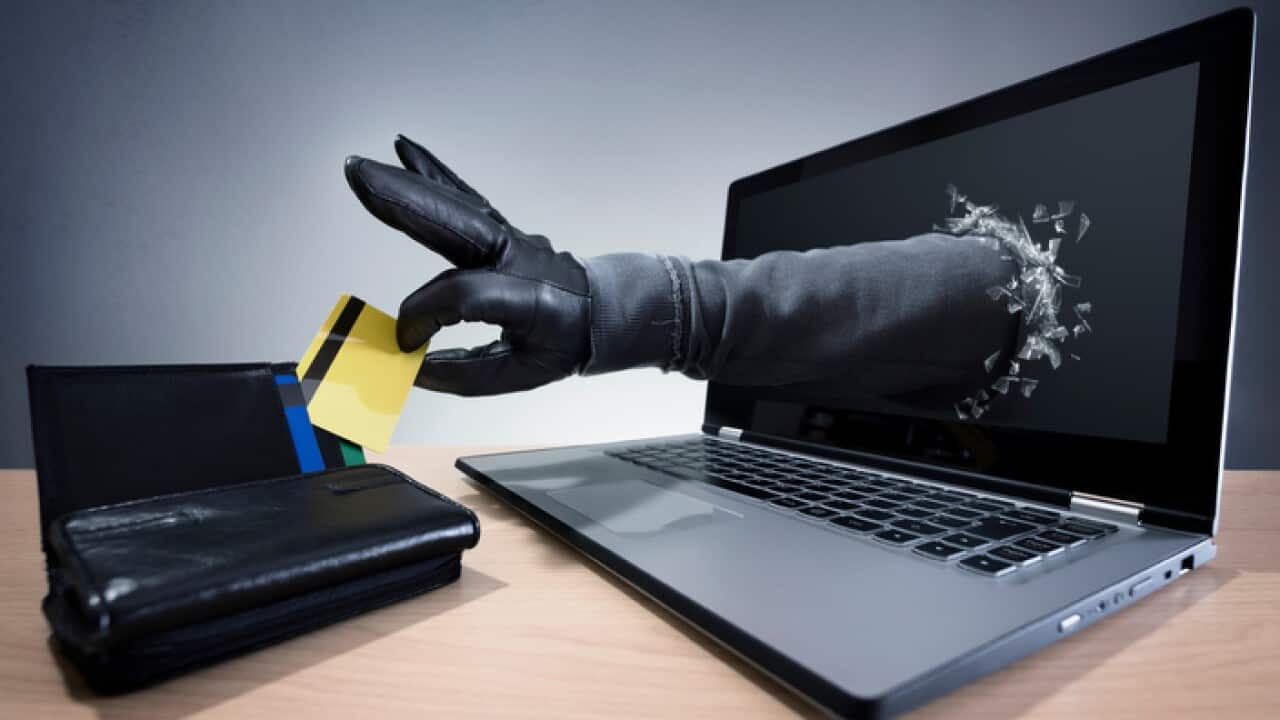Smart phones, social media sites and the internet are becoming inseparable aspects of our everyday lives.
By 2019 the average Australian household will have 24 devices connected to the internet. These are the estimations of Australia's Cyber Security Strategy; a government plan to address the growing number of online threats.
And when English is not your first language, understanding it all can be an additional challenge.
“Like in real life, if something is too good to be true, that's most probably is an attempt to defraud you.”
Use your common sense
The Australian Competition Consumer Commission's annual Targeting Scams report shows a 47 per cent increase in reporting of scams in 2016, with Aussies losing $300 million dollars. So it's important to be aware of the fact that scams exist.
Experts believe a way to spot cyber fraud is to use your common sense.
“Like in a real life, if something is too good to be true, that's most probably is an attempt to defraud you," says Cyber Security Hub Director of Threat Intelligence Stas Filshtinskiy.
"If someone would come to you and tell you that I know a place where for $100 they will give you the latest iPhone, you would not probably walk into that dark alley."
Generally speaking, it’s good to approach any online deals and offers with a healthy skepticism.
Be vigilant with online payments
Millions of credit card payments are processed online every day.
The Australian Payments Network (APN) latest report shows that 78 per cent of card fraud in Australia occurs online. It doesn’t matter if your payment is big or small, you should always be vigilant.
"What we see is that fraudsters take small amounts, and these increase over time," says APN’s Chief Executive Dr Leila Fourie.
"And what customers should certainly be doing is looking for the small amounts on their bills that don't make sense and that are unfamiliar"
Secure your computer
You can secure your server by seeking expert advice from a trusted supplier, restrict the number of administrator passwords and consider using a hardware firewall for your server. Regularly back-up server data and keep back-up data secure and only available to authorised personnel. It’s also advisable to keep current with your software and virus protection.
"While keeping your software up to date doesn't always help, it generally does protect against watering-hole attack," says technical director Richard Davies from Context, Information, Security.
He explains this is "where you are visiting a common website which has been hacked, which will then look at target plugins in your web browser."
Secure your internet connection
Your internet connection is a channel from the outside world into your computer. If it isn't secured properly someone may use it to get to your information or hijack your connection or computer for their own purposes.
You can help harden protection for these connections by measures such as changing the default administrator (admin) password for the device and ensuring remote management is disabled.
Do not share your password
Try to create strong passwords and don't share them with anyone. A random combination of numbers, letters and punctuation over eight characters long is recommended. Remember, do not use the same password for every account you may have and keep your passwords and pin numbers in a safe place.

ATO warns people against online and mobile phone scams. Source: Getty Images
Do not download files from unknown sites
Likewise, do not open suspicious texts, pop-up windows or emails – it's always a good idea to delete them.
Protect your mobile device
It's important to keep your mobile device with you at all times. If your mobile device is unsecured and it’s lost or stolen, then it could be easily used to access your money or to steal your identity by using information on your device.
Protect your personal information and privacy
Treat your personal information as you would treat your money - don't leave it lying around for others to take. With your stolen identity, a person may access your bank account, obtain credit cards or loans in your name, or claim welfare benefits, and potentially ruin your credit rating.
“Often people don't realise something malicious has happened until they get a bad credit rating from financial institutions” says cyber-crime expert from The University of Canberra Nigel Phair.
What about your kids?
The Australian Multicultural Foundation has recently launched a web app to encourage safe and healthy internet use in Australian homes. Available in 17 languages including Arabic, Somali, Chinese, Hindi, Turkish and Vietnamese, is designed to teach parents how to know what their children are doing online and on social media.
How to get help?
The Australian Competition and Consumer Commission (ACCC) is a good place to start.
They provide up-to-date information on the most common types of scams in circulation in Australia and they also collect and publish data on them. Here you can find a and useful sites compiled by the ACCC to help you understand, recognise and avoid scams.
If you believe some of your privacy has been breached, you can contact the Office of the Australian Information for assistance on 1300 363 992.
And don’t forget to check the list of current online threats on the government’s.



